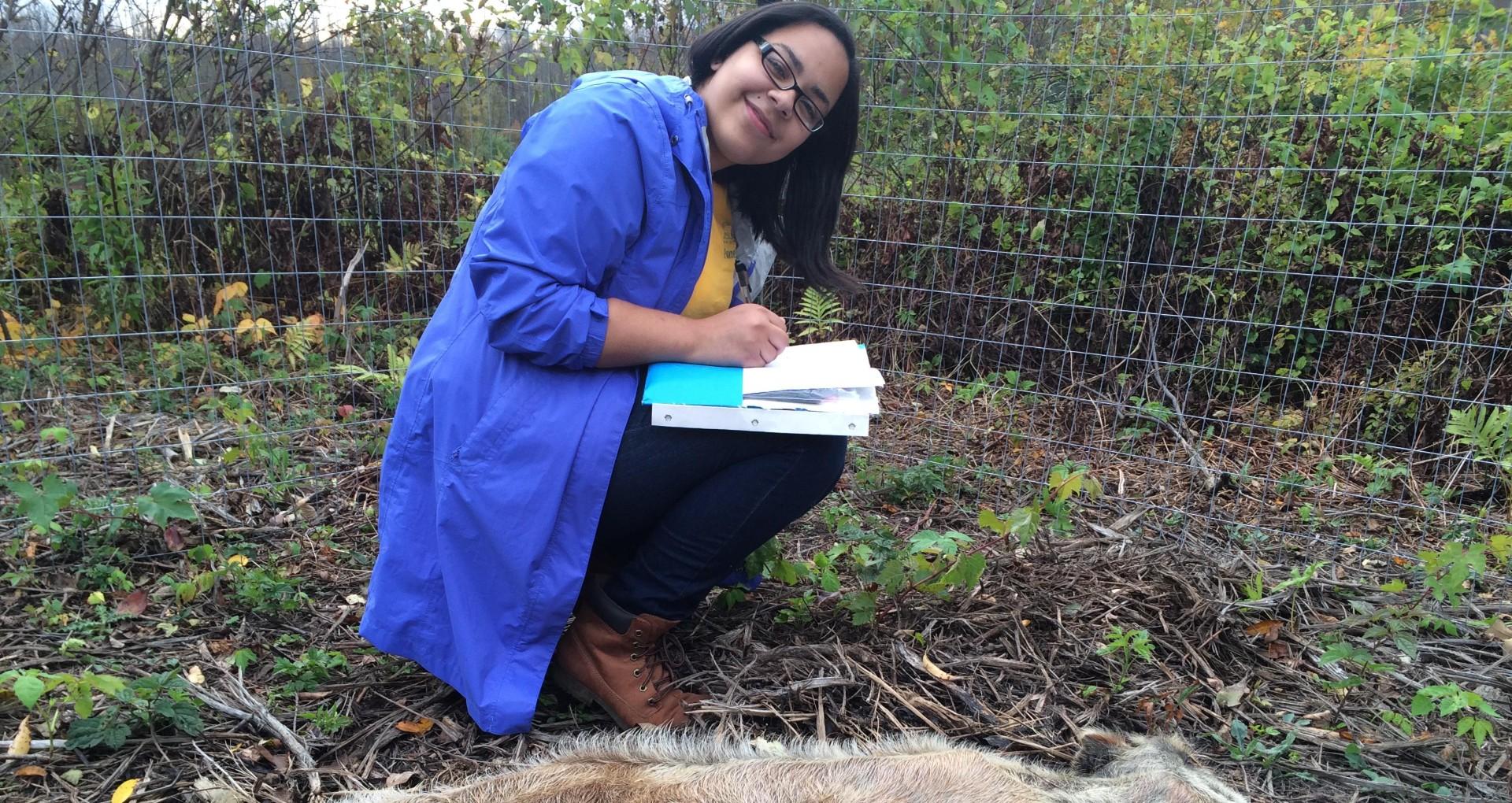Fall 2014 - Summer 2015
Effects of scavenging birds and insects on decomposition time of pig carcasses at Rice Creek Field Station
The focus of my research was to study the effects that scavenging birds have on the decomposition of a carcass. Past studies throughout the United States have focused on exploring the effects of scavengers on bone and flesh to differentiate the marks left of scavengers from that of other wounds. However this subject has been severely understudied in the northeast area. Not just the subject itself but the effects of birds alone not been looked at in this region. By studying the avian community, forensic investigators will be able to account for the speeding up of decomposition due to scavengers and distinguish the injuries left on the surface of the body and bone. The scientific mission of my research is to further forensic anthropology education at Rice Creek.
It is a lot of work and time. A lot. You can imagine the amount of time it will take to conduct a research project, now times that by three and you have maybe half the amount of actual time it takes. I can definitely say that it is 110% rewarding to have the experience and accomplishment of finishing each step of the project knowing how much work was put in. Conducting research lets you dip a little into the type of career you may want to have. The research I have been doing made me realize that I am in love with forensic science (and I have a stronger stomach than I thought!) and I would not have realized that without this research. I am glad I can combine both my major (zoology) and my minor (forensic science) into one project. It is an unforgettable experience.
One of my most memorable research experiences at Rice Creek Field Station is one of the times I went out to the study sites and saw that one of my pigs have been scavenged on for the first time. I was shocked for multiple reasons: the smell!, the sight of an open wound, and the fact that birds had actually been there. It was then that it hit me - my project was working, I was getting data, it was real now, and I was going to see it through to the end.
I grew up in a very small town called Conklin, right down the road from Binghamton. It is a very suburban area and there is a farm just down the road from me. I have always had a love for animals and I always found being out in the woods by my house very relaxing. My interest for science did not really build up until my junior year of college. Yes, I had a major in Zoology but I did not really love it until then. Which I think is okay. Just being more immersed into what the major was made me realize that I really love science. Sometimes the passion does not come right away but when it does you know you made the right choice.
I can honestly say that I am not 100% sure. I would like to try out jobs/internships in both animal husbandry and forensic science. I love both and once I am confident on which direction I want to take I will go off to graduate school and obtain my masters in a focus of study. Until then I will continue to study both fields and gain as much experience as I can.



